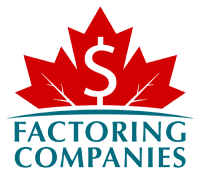Crucial Tips for Benefiting from Receivables Financing
If you’re a small or mid-sized business owner, you know just how challenging it can be to keep cash flowing through your business. Even if you’re technically successful and have plenty of money owed to your company by clients, a lack of liquid capital in your company might have potentially devastating consequences. You might be unable to pay your employees, or find that you lack the cash needed to purchase supplies or materials for your next project. That’s where receivables financing comes handy.
Receivables financing helps you overcome those challenges and build a successful, thriving business. Of course, in order to benefit from accounts receivables financing, you’ll need to understand how this type of funding works, and some important tips for using it. We’ll begin with a brief explanation and then move on to using accounts receivable funding to grow your business.
What Is Receivables Financing, Anyway?
Chances are good that you’re familiar with financing receivables, but perhaps not by that name. It’s also called invoice factoring, invoice financing, and receivables factoring. They all boil down to the same thing – you sell an invoice to a factoring company. In return, the factoring company provides you with a cash advance that can be used for whatever it is your business needs, whether that’s money for payroll requirements, to purchase supplies or materials, or cash to invest in a new business location for company expansion and growth.
So, the benefits of this type of financing include the following:

Of course, there’s more that you’ll need to know about how receivables financing works if you’re going to make use of this powerful tool, and we’ll discuss that below.
How Does Receivables Financing Work?
While we’ve outlined how the process works in brief, it is a little more complex than that. For instance, you’ll find that selling “just any” invoice isn’t really possible. That’s due to a couple of things.
Factoring companies, like lenders, are risk averse. While they aren’t concerned with your business’ credit history, they are concerned with that of your client. If your client or customer has a history of slow or missed payments, chances are good that you’ll either pay more in fees for factoring, or be unable to sell the invoice at all. That makes sense as the factoring company needs to protect itself from risk.
So, the best invoices to factor are those from clients with good credit histories and a reputation for on-time payments.
Another important consideration in this equation is the amount the factoring company will advance. While there are numerous factors in Canada, they’re not all that similar. Some will offer an advance of 70% of the invoice total, while others might be willing to advance you up to 90% of the total, or even more.
Superficially, that makes it seem like the best option is to shop around for a factoring company that offers the highest advance possible. That’s logical, but it doesn’t account for the potential for hidden fees and charges to eat into your capital. Often, you’ll find that factoring companies offering the highest advances also charge the highest fees, or have hidden charges.
Obviously, it’s important to compare contracts in order to determine exactly how much you’ll be paying. You’ll also need to consider the amount of the factoring fee – the amount charged for factoring that’s taken off the reserve, which is the name given to the remaining balance of the invoice. Once your client pays the invoice, the factoring company will pay you the balance, less the factoring fee. If the factoring fee is very high, you might see little or none of that remaining money.
Now that you know a bit more about how the process works, it’s time to consider some of the most important tips for using receivables financing to build a more successful business.
Crucial Tips for Receivables Financing

In order to truly benefit from receivables financing, you’ll need to understand a few important things.
Look at the Total Cost: As mentioned previously, you’ll pay for receivables financing. However, the amount will vary from one factoring company to the next. It’s vital that you compare the total cost from each company you’re considering before you make a decision. That can be difficult, as some firms tuck away hidden fees and charges in their contracts.
Look for things like application fees, processing fees, management or account maintenance fees, and other charges that eat into the amount of capital you’re actually able to realize from the transaction. Choose your factoring company based on the level of service provided, plus the amount of money lost due to fees charged.
No factoring company will pay you 100% of the invoice total, but some come much closer than others. Obviously, every cent counts when you’re struggling with liquidity, so do your due diligence and vet factoring companies to reduce overall costs. Of course, you’ll also need to pay attention to the type of factoring being offered.
Know the Type of Receivables Financing: There are a few different receivables financing models used today. One of the most common is called “recourse” factoring. In this situation, you’re held responsible if your client doesn’t pay the invoice.
That can be a very difficult situation in which to find yourself, particularly if you have already spent the advance. And, make no mistake, with longer-term invoices, it’s very possible for you to have spent all of the advance well before the customer pays their bill. For instance, let’s say you sell an invoice that’s due in 90 days. You obtain the advance within 24 hours. By the time three months have passed, the entire advance will be gone.
What happens if your client doesn’t pay at the end of that time? How will you repay the factoring company? This is just one more example of why it’s so important that you only sell invoices from clients that you know will ultimately pay their bill.
The other type of receivables financing commonly used today is “nonrecourse” factoring. In this situation, the factoring company maintains responsibility if your client doesn’t pay the bill. Obviously, that’s a weight off your shoulders, as you won’t have to repay the advance should your client default in the bill.
However, this type of receivables factoring usually comes with higher fees to offset the increased risk to the factoring company. In some cases, it can be exorbitantly expensive. Speaking of expensive, you also need to consider a few things about the factoring fee itself, which brings us to our next topic.
Understand the Factoring Fee Assessment: Factoring companies offer crucial services, but they must turn a profit, as well. That primarily comes from the factoring fee that’s assessed with each invoice sale. You’ll pay a percentage of the invoice total at the time your client pays their bill.
This percentage varies from company to company, but typically runs between 1% and 5% of the total. However, it’s important to understand that these fees are often assessed monthly, not just at the time of payment.
So, if you sell a 90-day invoice at the beginning of the term, you will be charged the factoring fee not once, but three times. If the invoice is sizeable, that can quickly add up to a significant amount of money. Even with a smaller amount, it might eat into the amount you receive so much that factoring is not worth it in your situation.
Pay attention to not just the factoring fee percentage, but when it’s assessed, and how often you’ll have to pay it.
Know That Specialists Are Available: You’ll find that a great many factoring companies in Canada are generalists, meaning that they’re willing to work with clients in just about any industry. However, that may or may not be the right path for you to take. Depending on your industry, it might make more sense to obtain receivables financing from a specialist firm.
Why is that? Really, it comes down to familiarity with your industry and its practices, as well as the availability of perks and additional services that can provide greater value. You’ll also find that while generalist firms might say they’re happy to work with business owners from almost any industry, their lack of familiarity with some of the more unique situations may make them hesitate to factor invoices for you.
A good example of this is the construction industry. There are myriad arrangements here that make factoring more challenging. For instance, if you’re a subcontractor working for a general contractor, a generalist factoring company may not buy your invoice because they’re worried that if the customer doesn’t pay the general contractor on time (or at all), then you won’t get paid. That’s a lot of risk in their eyes. However, a factoring company that specialises in the construction industry understands that this is just business as usual and won’t balk at buying such an invoice.
Another example is the transportation industry. Trucking companies often have invoices for smaller amounts, and may or may not work with a customer more than once. The timeline is also very different here, with factoring often required before a load can be hauled. A generalist factoring company might perceive too much risk to buy your invoice, but a specialist that works in the logistics/transport industry would not.
Finally, there’s the import/export industry, which involves invoices from international clients. Those carry enormous risks in the eyes of generalist factoring companies, but for those that specialise in trade receivables financing, it’s just another day at the office.
Some factoring companies will also offer additional services that can free up your time to focus on what you do best. For instance, many will act as your billing and collections departments, allowing you to build your business and serve your customers without having to hire more employees or waste your valuable time. Others may offer discount fuel cards for trucking companies, or provide assistance with importing and exporting.
As you can see, receivables financing can be highly beneficial, but there’s no one-size-fits-all solution. You’ll need to ensure that you’re working with a factoring company capable of serving your needs while supplying you with a much-needed infusion of cash. That brings us to our next topic of discussion – choosing the factoring company.
How to Choose a Factoring Company
From the information we’ve presented so far, it should be clear that while receivables financing can be a highly advantageous situation for you, it’s not as simple as choosing a factoring company at random and then selling an invoice to receive cash.
There’s more to it, and a great deal of your success (or lack thereof) hinges on your choice when it comes to a factoring company. You need to ensure that they’re legitimate, reputable and capable of serving your needs without charging exorbitant fees. You also need to ensure that they’re not just comfortable with the way your industry works, but have in-depth experience with clients in your area.
It’s vital that you conduct a side-by-side comparison of several factoring companies before finally deciding on your partner. Make sure to include the following items in your comparison:
Obviously, comparing factoring companies can take a great deal of time, energy and knowledge. It’s often too much for already-stressed business owners. That’s where we come in. We’ve spent years helping our clients find the right receivables financing company for their specific needs, and we invite you to take advantage of a free consultation with one of our factoring specialists. It can be far simpler than you think to boost positive cash flow within your business, and we’ll show you how.
Get an instant factoring estimate
Factoring results estimation is based on the total dollar value of your invoices.
The actual rates may differ.
CLAIM YOUR FREE FACTORING QUOTE TODAY!
PREFER TO TALK?
You can reach us at
1-866-477-1778
Get an instant factoring estimate
Factoring results estimation is based on the total dollar value of your invoices.
The actual rates may differ.
CLAIM YOUR FREE FACTORING QUOTE TODAY!
PREFER TO TALK? You can reach us at 1-866-477-1778

